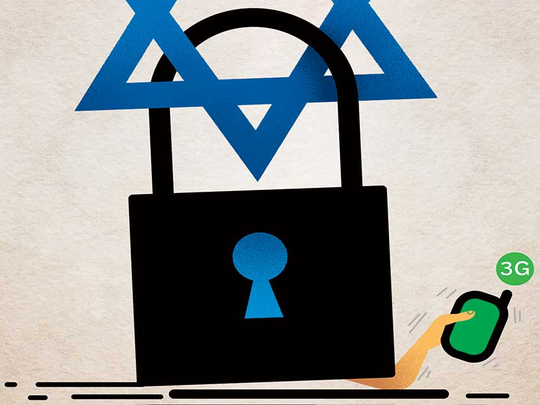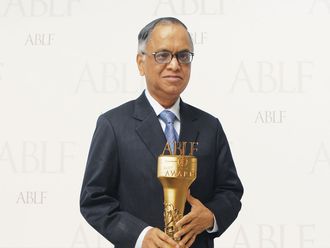
As the rest of the world prepares for the fifth generation of mobile communications technology, the West Bank finally has third-generation cell service.
Starting this week, Palestinians in the West Bank can buy 3G mobile service through one of two domestic providers. At a time when the fourth generation of mobile technology is available in even the most remote parts of the world — from the peak of Mount Everest to the islands of the South China Sea — Israeli restrictions had, until last week, forced Palestinians to settle for outdated, second-generation technology. And their economy reflects it.
Local startups such as Rocab, a Ramallah-based ride-hailing app, have struggled on Palestine’s 2G network, which isn’t fast enough for GPS services. Without real-time data, Palestinian health care and municipal service providers cannot anticipate consumer needs, leaving patients without protection and families without water and gas. And despite last week’s upgrade, Gaza still has only 2G service.
Without proper technology at home, many Palestinians have turned to Israeli providers, whose 4G reception reaches Palestine in fits and starts through towers built in illegal colonies constructed by Israel in the West Bank. Israeli providers have siphoned off nearly 30 per cent of the Palestinian customer base. This market capture has had a devastating impact on the telecommunications industry — to the tune of more than $1 billion (Dh3.67 billion) — stripping the Palestinian National Authority of vital tax revenues and royalties.
Palestine’s struggles with mobile services have not been for lack of effort and investment. For the past decade, local institutions such as the Palestine Investment Fund (Pif), which I chair, as well as regional investors have invested significantly in what we believe is a critical sector with vast growth potential. (Pif is a minority shareholder in Wataniya Mobile and Jawwal, the two domestic providers that launched 3G service last week.)
We’ve had the infrastructure in place to launch 3G across Palestine since 2015. What we were missing was Israel’s approval.
Through its occupation of the West Bank, Gaza and East Jerusalem, Israel controls the radio frequencies above ground, cellular towers on the ground, and telecom infrastructure below ground. The distribution of cellular frequency and the import of costly equipment come only with approval from the Israeli government.
With the peace process stagnant and Israeli providers benefiting significantly from the Palestinian market, it proved difficult for Israel to find an incentive to release lucrative 3G access to Palestinian providers. In the end, it took significant engagement from both the United States and the international Office of the Quartet, set up in 2002 to help support Palestinian economic development, to secure 3G access in Palestine. Last week’s launch is a welcome step towards unleashing Palestine’s mobile industry, but it also reveals a deeper problem. Israel restricts the development of vital industries in Palestine and then exploits a Palestinian market that has no other option than to purchase costly Israeli services and products.
In the energy sector, for example, restrictions on access to Area C, the 60 per cent of the West Bank under full Israeli military control, deprive Palestinians of large tracts of land suitable for solar-power generation. In fact, estimates show that if just 3 per cent of Area C was used for utility-scale production, 3,000 megawatts of solar capacity could be built.
Meanwhile, Palestinians buy 90 per cent of their electricity from the Israel Electric Corporation, which can exert monopolistic pricing in the absence of true competition.
Restrictions on Area C hold back Palestinian agricultural development as well. Palestinian farmers struggle to expand operations and bring produce to market without access to the Jordan Valley, a fertile track of land sitting firmly inside Area C. Israel has barred Palestinian agricultural activity in 85 per cent of the Jordan Valley. Meanwhile, Israeli produce floods Palestinian supermarkets.
Despite these challenges, Palestinians are finding ways to innovate around the roadblocks.
In the energy sector, public schools use rooftop solar panels as an alternative to electricity imported from Israel. Vertical-farming techniques are offering new life to Gaza strawberry farmers, nearly tripling their annual output while offsetting an acute shortage of productive land. And in technology, young entrepreneurs from Gaza to Bethlehem are leveraging innovations in information technology to break the physical barriers of occupation through online services.
These entrepreneurs give us a sense of what is possible in a free and prosperous Palestine. It is time to lift restrictions on the Palestinian economy — and allow innovative minds to chart a path for the future.
— Bloomberg
Mohammad Mustafa is chairman of the Palestine Investment Fund and senior economic adviser to Palestinian President Mahmoud Abbas.










